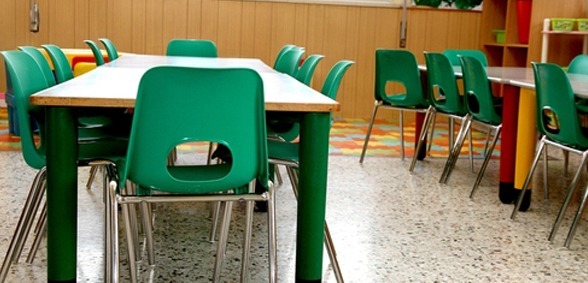
CREDIT: This story was first seen in TES
The first new grammar schools could admit pupils in September 2020, according to a Grammar School Heads’ Association document released after meetings with senior government figures, TES reports.
The organisation’s spring newsletter said that its executive officers had met the new selective education team at the Department for Education, led by Nick Timothy, the prime minister’s joint chief of staff, who is seen as a driving force behind the push for more academic selection, and Josephine Howarth.
The document said executive officers and other headteachers were invited to a roundtable discussion with education secretary Justine Greening and schools minister Nick Gibb after the government consultation closed, and also met Will Tanner and Helen Alderton from the No. 10 policy unit.
The newsletter listed a series of “key points” that had emerged, including:
- New selective schools are likely to be opened as free schools and the first are most likely to admit their first pupils in September 2020;
- But, in the short-term, new selective places will be provided either within multi-academy trusts or by on-site and annex expansion of existing selective schools;
- The government is considering a national selection test to address “test tourism”, and wants to work with grammar schools and test providers “on further developing coaching-resistant tests”;
- The new opportunity areas announced by Ms Greening are “clearly priorities for new selective schools”, but “no areas are excluded where there is parental demand”;
- The government “still wants to see ‘top 25% pupils’ in comprehensive schools”, and “new selective schools will probably have a narrower ability range, perhaps more like top 10%”;
- The government believes “intensive primary outreach work from an early stage is crucial”, but it needs funding, and primary school heads could be used to help select pupils from disadvantaged backgrounds.
According to the newsletter, Ms Greening said the response to the consultation, which closed in December, was not “an overwhelming flood of negativity”.
It said ministers agreed there were a lot of people who were philosophically opposed to selection and said it damaged the education of other pupils, but who “present little or no evidence to support this claim”.
A Department for Education spokesperson said: “Thanks to the government’s reforms over the last six years, there are now almost 1.8m more pupils being taught in schools rated good or outstanding schools than in 2010. But we know there is more to do, and that’s precisely why we have set out plans to make more good school places available, to more parents, in more parts of the country – including scrapping the ban on new grammar school places, and harnessing the resources and expertise of universities, independent and faith schools.
“The Schools that work for everyone consultation closed on December 12. As the Secretary of State told the House of Commons on Monday, we have received several thousand submissions, which we are now going through. We will respond in the spring.”
Don’t forget to follow us on Twitter, like us on Facebook, or connect with us on LinkedIn!

Be the first to comment